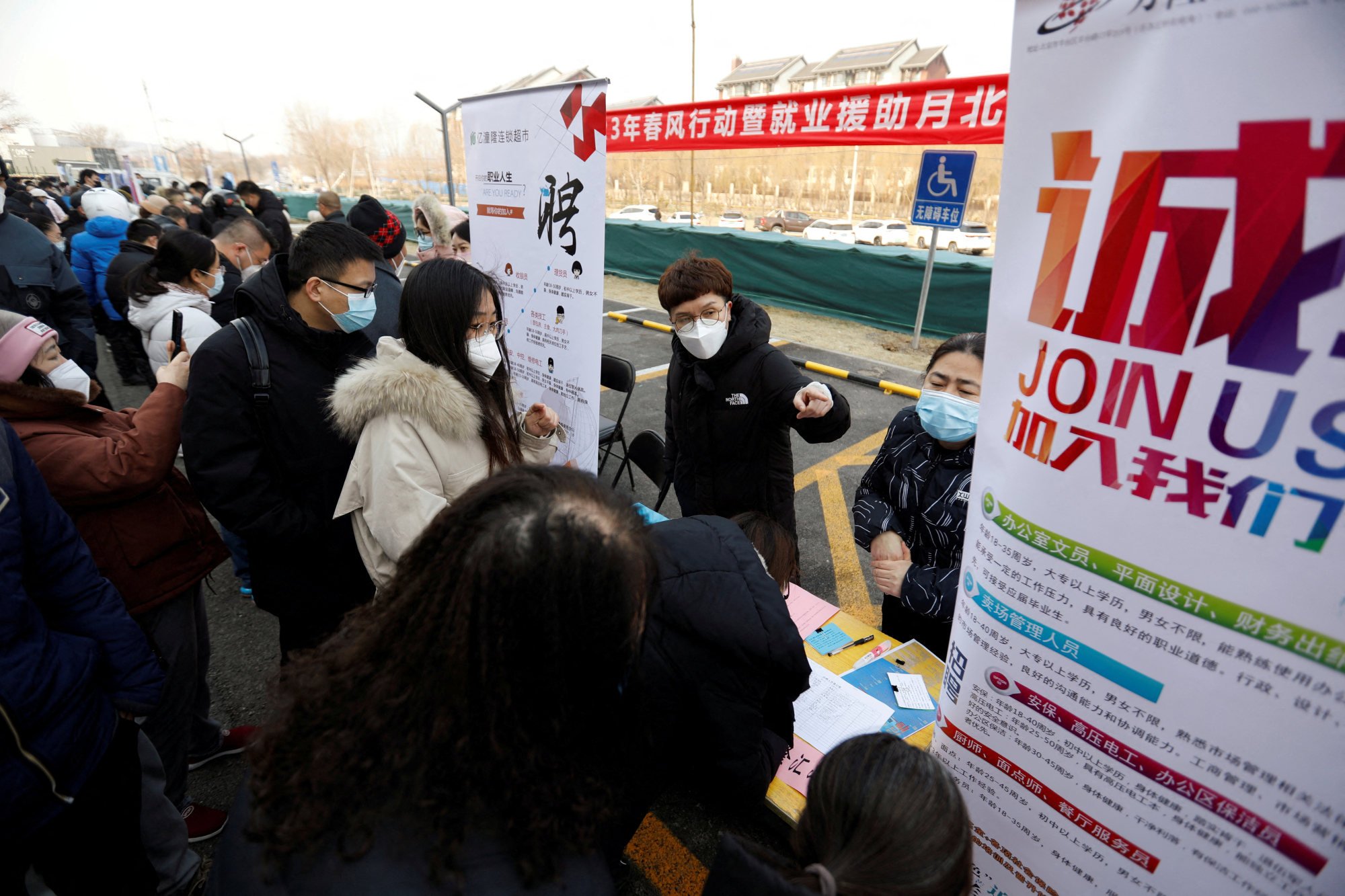
China must protect its private economy to solve its youth unemployment crisis
- While China’s latest youth unemployment rate is comparable to global figures, it is particularly concerning given the country’s unique demographic structure
- China must boost private entrepreneurship and create a tolerant social atmosphere to help its young workers find jobs and feel better
While the headline figures are nothing exceptional – the global ratio of NEETS, or “not in education, employment or training”, in the age group of 15-24 exceeded 20 per cent in 2020 – they present a particularly worrisome picture in China, given the country’s population size and unique demographic structure.
According to China’s official statistics, the size of its youngest labour population – defined as people born between 1999 and 2007 – is over 150 million, so 20 per cent would be roughly 30 million people. The numbers do not include workers aged 15 because they are below the minimum legal work age.
A large portion of young Chinese men and women are still in school and not in the job market, but if, say, half or a third of them are unemployed, that would mean millions of Chinese households are struggling.
The disappointment experienced by unemployed youth themselves can also dampen the society’s morale. These young people were raised being told that the sky is the limit, but the cold reality is that they cannot even find a job to support themselves.
As the youth jobless rate rises, there has been a noticeable sentiment change in Chinese society: people seem to increasingly prefer stability over possibility. If this situation continues, it is set to cast a long shadow over the nation’s economy and demographic structure.

Beijing is clearly aware of the issue, and we can expect to see more meetings, policies and campaigns designed to address youth unemployment, especially when 11.6 million fresh university graduates are going to flood the job market next month.
One suggested approach is to encourage public institutions and state enterprises to hire more new graduates. Another suggestion is for these jobseekers to look for employment in rural areas.
These policy suggestions are just a drop in the bucket, or in Chinese, “like trying to put out a burning cart of firewood with a cup of water”. One plain fact is that in China, the private economy, not the state sector, creates over 90 per cent of new jobs.
As such, the country must boost private entrepreneurship before it can solve its youth unemployment issue. In doing so, authorities have to recognise the role of certain service sectors in providing jobs for young people, and not easily destroy these job creators.

China’s legion of Big Tech companies were among the major recruiters of young talent, but their ability to create jobs has been eroded amid economic slowdown and regulatory pressure. In fact, their latest financial reports show that many of them have been cutting, rather than adding, jobs.
Meanwhile, authorities should also be more tolerant of the words and behaviour of young people to allow creativity to prosper.
When a super influencer is erased from the internet overnight for personal misconduct, when a thriving venture is forced to close because of a bad joke, or when a popular social media account with millions of followers is shut down over an improper statement, many legitimate business ideas and ventures are also being suffocated.
Only with a booming private economy and a tolerant social atmosphere can the problem of youth unemployment be fixed.


